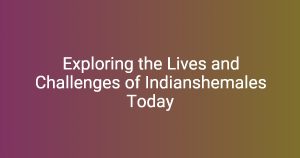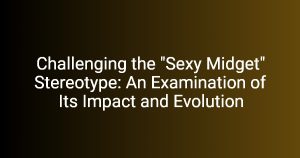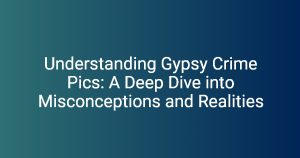Many people wonder why are police called 12? This term is widely used in various communities, particularly among youth and in popular culture, but its origins and implications are often misunderstood. Understanding slang, especially in the context of law enforcement, helps shed light on the evolving relationship between police and the communities they serve. In this article, we will explore the origins of the term “12,” cultural references, its interpretation and meanings, as well as contemporary usage, and the social implications associated with it.
Origins of the Term “12”
Historical Context
The term “12” has seen an evolution similar to other police terminology over the years. Originally derived from the numerical designations used in police radio codes, the term has transitioned into a colloquial shorthand that signifies police, particularly in urban settings. Communities have developed their own unique slang to discuss law enforcement, often as a means of navigating complex relationships. Understanding the historical backdrop of police slang allows for a deeper comprehension of why phrases like “12” resonate with many.
Numerical Designations
The practice of using numbers to refer to police forces is not unique to “12.” In fact, many police departments use numerical identifiers in their operations. For example, in some areas, “10” is used in police codes, while “5-O” is another common term. These numerical references help create an insider language that becomes embedded in community culture. Thus, the question of why are police called 12 can be traced back to the historical significance of police radio codes.
Cultural References
Influence of Music and Media
One of the most significant factors in popularizing the term “12” is its prevalence in hip-hop and rap culture. Artists like N.W.A., and more recently, Kendrick Lamar, have infused their lyrics with references to “12,” shaping public perception and reinforcing certain attitudes toward law enforcement. For instance, in songs that speak to police encounters, the term is often used derogatorily, portraying police as antagonists.
Through powerful lyrics and anecdotes that emphasize tension between officers and community members, the representation of “12” has left a lasting impact on how youth perceive police interactions. Movies and television shows also play a crucial role in perpetuating these cultural connotations, with titles like “Training Day” and “The Wire” famously incorporating slang to depict the complexities of police work and community relations.
Regional Variations
Slang terms can vary dramatically between different cities and communities. The term “12” is commonly used in urban contexts, while suburban areas may lean towards different expressions. In some regions, inherent cultural differences shape the names assigned to law enforcement, with terms like “the fuzz” or “the cops” still in circulation. Understanding these regional variations gives insight into the language surrounding police and illustrates how perceptions differ based on geographical and cultural contexts.
Interpretation and Meaning
Theories on the Number “12”
Various theories have emerged surrounding why law enforcement is identified as “12.” One connection could be linked to police radio codes, which often utilize numbers to convey specific messages. This theory suggests that “12” may be a shorthand for certain police functions or statuses, maintaining a level of secrecy among officers.
Another hypothesis involves the connection to the criminal justice system, where “12” could symbolically reference the twelve jurors required for a trial. This connection hints at a broader commentary on the justice system and how law enforcement operates within that framework.
The Social Implications of the Term
Slang often reflects societal attitudes, and the term “12” is no different. It encapsulates a complex relationship between the community and law enforcement, especially in light of movements advocating against police brutality. The usage of “12” during protests symbolizes a growing dissent against perceived injustices, revealing how language can reflect broader societal sentiments.
Moreover, the term possesses a duality: while it can be used casually, it can also carry a pejorative connotation, further complicating the conversations surrounding police-community relations. This duality highlights the need for dialogue and understanding among community members.
Contemporary Usage
Current Trends in Slang
Slang is continually evolving, and terms like “12” reflect ongoing societal changes. The question of why are police called 12 remains relevant today, as shifts in language often reveal shifting perceptions of authority and community. Among younger generations, the use of “12” can signify a playful jest at law enforcement’s expense, while also serving as a reminder of the seriously perceived police encounters in their lives.
Understanding current trends in slang not only aids in grasping language’s nuanced nature but also emphasizes how perceptions evolve over time.
Impact on Police-Community Relations
Language profoundly influences perceptions of law enforcement, as seen with the term “12.” Communities grappling with police relations often find that the use of such slang can either bridge gaps or reinforce divides. Initiatives aimed at fostering positive engagement, including community policing efforts and dialogue, rely significantly on understanding the language used within those communities.
Words can shape narratives and perceptions; thus, conversations around terms like “12” hold immense value for improving police-community relations. Tailored approaches that acknowledge local vernacular can create meaningful dialogue between law enforcement and the public.
Conclusion
The term “12” serves as a fascinating lens into the relationship between police and communities, helping to illustrate how language shapes perceptions. Understanding why are police called 12 not only enriches our awareness of policing culture but also emphasizes the role of language in shaping societal attitudes toward law enforcement. As communities adapt and evolve, it will be essential to consider how these discussions about police slang will contribute to ongoing conversations about policing and community relations.
References
– [Link to authoritative resource on police terminology]
– [Link to studies on police-community relations]
FAQs
1. Why do people use the term “12” to refer to the police?
The term “12” is a slang reference to police that has been popularized particularly in urban communities and through music culture.
2. What are other slang terms used for police?
Other common slang terms for police include “the fuzz,” “5-O,” and “pigs,” with variations dependent on region and culture.
3. How has hip-hop influenced public perception of police?
Hip-hop often portrays police in a negative light, which influences how listeners perceive law enforcement, intertwining the term “12” with themes of inequality and resistance.
4. Why is understanding police slang important?
Understanding police slang fosters better communication and can aid in improving relationships between law enforcement and communities.
5. Are there any positive connotations associated with the term “12”?
While “12” is primarily used negatively, in some contexts, it can reflect community identity and solidarity against perceived injustices.
6. Can language impact police-community relations?
Yes, language plays a crucial role in shaping perceptions and can either facilitate positive dialogue or reinforce divisions between law enforcement and communities.
7. What are some historical police terms?
Historical terms include “copper,” which originates from the copper badges worn by officers, and “cops,” which comes from the verb “to cop,” meaning to seize or capture.
8. How do regional variations in slang affect perceptions of police?
Regional slang can shape perceptions by reflecting local attitudes toward law enforcement and varying experiences with policing practices.
9. Are there any educational programs addressing police terminology?
Yes, some community policing initiatives work to educate officers and community members about the local vernacular and its significance in dialogue.
10. How does civilian use of police slang affect law enforcement?
Civilian usage of police slang can impact how officers approach community interactions and may also reflect broader societal attitudes toward policing.
| Key Point | Details |
|---|---|
| Term “12” | Slang for police used predominantly in urban communities. |
| Cultural Influence | Heavily popularized through hip-hop and media representations. |
| Regional Variations | Different slang terms exist across various cities and communities. |
| Social Implications | Reflects community attitudes toward law enforcement and societal issues. |
| Contemporary Trends | Continues to evolve, informing ongoing discussions about policing. |




